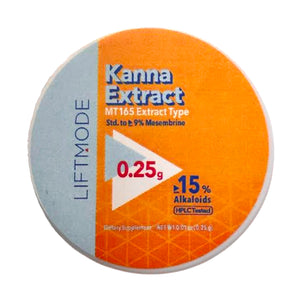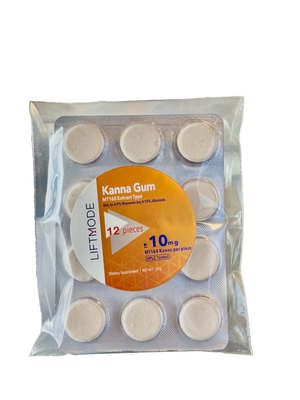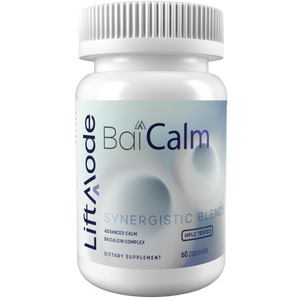Black pepper (
Piper nigrum) is a flowering vine native to India used worldwide as a spice and seasoning. Piperine is the main constituent which is responsible for black pepper’s pungency.
In traditional eastern medicines, Piperine was employed for its immune-protective and detoxifying properties.
[1] Currently, Piperine is being studied for its incredible health benefits. Its primary use is its ability to enhance the efficacy of co-administered drugs and supplements by slowing their intestinal removal.
In this article, we will investigate the Piperine benefits and how it can improve your health. The recommended dosage for Piperine is 20-mg per day. Be sure to check out our product description for more information on Piperine.
![]()
Top 4 Health Benefits of Piperine
For centuries, Piperine was used in Ayurvedic and Traditional Chinese practices to treat various ailments. These include treating poor digestion, nausea, headaches, heart disease, pro-inflammatory diseases, toothaches, lung conditions, insomnia and many more. Currently, Piperine is being studied in the prevention and treatment of inflammation, oxidative stress, depression and improvement of focus and memory.
[1] [2]
-
Increases Availability of Key Nutrients
Piperine’s strongest benefit stems from its ability to elevate the effects of other dietary supplements, especially those which enhance brain function (nootropics). This is due to a process called glucuronidation where enzymes in the liver bind to a foreign substance and mark it as a toxin for excretion. Piperine hinders this process and slows down the metabolism of supplements by the liver. This allows the nutrients from supplements to be absorbed efficiently by the intestines.
[3]
Multiple studies concur that adding Piperine to your supplement regimen increases gastrointestinal absorption of bioactive compounds in nutraceuticals including vitamins, beta-carotene, selenium,
[4] and certain pharmaceuticals.
[5] This amplifies the immune-protective effects of the dietary nutrients contained in supplements.
Some noteworthy Piperine combinations are curcumin, green tea extract, baicalin, berberine HCL and resveratrol. The most powerful Piperine stack is curcumin, a herbal remedy popular for its anti-inflammatory properties. Taken alone, curcumin has poor absorption due to its rapid metabolism in the liver and excretion in the urine. Studies showed the administration of Piperine with curcumin increased the bioavailability of curcumin by 2000% compared to curcumin alone.
[6]
-
Reduces Stress and Anxiety
One of the top attributes of Piperine is its ability to reduce feelings of anxiety and stress. Scientists have published multiple studies evaluating the
benefits of Piperine extract on depression. One study suggested that Piperine is more powerful than the leading antidepressant medication
Prozac® (fluoxetine)
[8] – through an increase in mood-regulating hormones.
In fact, a 2005 study demonstrated the MAO inhibitor (MAO-I) activity of Piperine. Piperine binds to enzymes called monoamine oxidases (MOAs). These enzymes break down mood-stabilizing neurotransmitters in the brain like serotonin, norepinephrine and dopamine. When too many MOAs are present, these neurotransmitters become deficient. A lack of serotonin, dopamine and norepinephrine can lead to depression and anxiety. By binding and blocking the action of these MOA enzymes, Piperine increases the concentration of the happy hormones, thus improving mood and reducing symptoms of depression.
[9]
Combining Piperine with other supplements showed to enhance the absorption of these in the liver and intestines. Curcumin, known for its anti-inflammatory and anti-depressive properties, works particularly well when taken in conjunction with Piperine. Similarly, Resveratrol, another natural antidepressant, has a synergistic relationship with Piperine. Both stacks are great natural mood-stabilizers.
[10]
![]()
-
Reduces Inflammation and Oxidative Stress
Piperine contains powerful anti-inflammatory and antioxidative capabilities. Reducing inflammation in the body is one of the key components in preventing disease, maintaining a healthy lifestyle, and promoting longevity. However, it is essential to pair your supplement regimen with consistent healthy habits. These include a healthy diet, quality time outdoors, proper sleep hygiene, water, and adequate vegetable/fruit intake.
Recent studies have discovered Piperine to be a natural source of antioxidants. In animal models, the administration of Piperine on a group of rats fed a high-fat diet indicated a significant reduction in oxidative damage as opposed to the control group.
[11]
Since curcumin and Piperine are both potent anti-inflammatories, it is logical to assume that hey may be able to help with arthritis. Researchers put this to the test. They found that Piperine and curcumin proved to be more effective at reducing pain in patients with arthritic conditions than pharmaceutical medications.
[12] Given that Piperine boosts the effects of curcumin, in theory, this combo would make for the perfect inflammation-fighting duo, minus the risk of gastrointestinal toxicity associated with anti-inflammatory pharmaceuticals.
[13]
-
Improves Cognitive Function
Piperine is currently being studied for its neuroprotective qualities. In animal models of Alzheimer’s disease, supplementation with Piperine significantly enhanced memory impairment and neurodegeneration in the hippocampus after 3 weeks of administration.
Researchers postulated these neuroprotective effects are potentially associated with Piperine’s capability to decrease lipid peroxidation and inhibit the action of acetylcholinesterase enzyme.
[14] This enzyme breaks down acetylcholine (ACh). Acetylcholine is a neurotransmitter which plays a critical role in the development of executive functions such as memory, focus, reasoning and cognition.
A deficiency in acetylcholine can lead to conditions like ADD, ADHD and Alzheimer’s. Piperine would, in theory, increase the concentration of this neurotransmitter in the brain thereby improving cognitive abilities. However, there is still room for research regarding causal mechanisms.
[15]
Conclusion - Top Piperine Benefits
In summary, the key benefits of Piperine are enhancing cognitive abilities, protecting the immune system and relieving pain in pro-inflammatory diseases. Piperine’s most well-known attribute is its ability to amplify the potency of other supplements.
Liftmode Piperine is considered safe at the recommended serving size of around 5-20 mg. However, because of its inhibitory mechanism in the metabolism of drugs, avoid taking Piperine with medications. For even more benefits, be sure to combine Piperine with our new
Curcumin supplement!
![]()
Medical Disclaimer
Not intended to treat, diagnose, or cure any disease or ailment. Please read and fully understand the potential adverse effects before using this product. These statements have not been reviewed by the FDA and are not written by a medical professional. Please consult your doctor before using any supplements, especially if you have any medical conditions.
Murielle
Health Consultant, studying Health Sciences and Naturopathic Medicine Researched & written by
Murielle and verified by the Liftmode.com Research Team
Citations and Supporting Literature:
[1] Pathak, N., & Khandelwal, S. (2007). Cytoprotective and immunomodulating properties of piperine on murine splenocytes: An in vitro study. European Journal of Pharmacology, 576(1-3), 160–170.doi:10.1016/j.ejphar.2007.07.033
[2] Rao VR, Raju SS, Sarma VU, Sabine F, Babu KH, Babu KS, Rao JM.
Simultaneous determination of bioactive compounds in Piper nigrum L. and a species comparison study using HPLC-PDA.
Nat Prod Res. 2011 Aug;25(13):1288-94.
[3] Srinivasan K. Black pepper and its pungent principle-piperine: a review of diverse physiological effects. Crit Rev Food Sci Nutr. 2007;47(8):735-48. Review.PubMed PMID: 17987447.
[4] Bhardwaj RK, Glaeser H, Becquemont L, Klotz U, Gupta SK, Fromm MF. Piperine, a major constituent of
black pepper, inhibits human P-glycoprotein and CYP3A4. J Pharmacol Exp Ther 2002; 302(2): 645-50.
[5] Majeed M, Badmaev V, Bammi RK, Prakash S, Natarajan S. Methods for increased bioavailability of nutrients and pharmaceuticals by tetrahydropiperine and its analogue and derivatives 2005. USA Patent No 6849645 B2.
[6] Shoba G, Joy D, Joseph T, Majeed M, Rajendran R, Srinivas PS. Influence of piperine on the pharmacokinetics of curcumin in animals and human volunteers. Planta Med. 1998 May;64(4):353-6. PubMed PMID: 9619120.
[8] Lee S.A., Hong S.S., Han X.H., Hwang J.S., Oh G.J., Lee K.S., Lee M.K., Hwang B.Y., Ro J.S. “Piperine from the fruits of Piper longum with inhibitory effect on monoamine oxidase and antidepressant-like activity.”
Chemical and Pharmaceutical Bulletin (Tokyo). 2005 Jul;53(7):832-5.
[9] Lee SA & al. op. cit., 8
[10] Huang W., Chen Z., Wang Q., Lin M., Wu S., Yan Q., Wu F., Yu X., Xie X., Li G., Xu Y., Pan J. “Piperine potentiates the antidepressant-like effect of trans-resveratrol: involvement of monoaminergic system.”
Metabolic Brain Disease. 2013 Dec;28(4):585-95.
[11] Vijayakumar RS, Surya D, Nalini N. Antioxidant efficacy of black pepper (Piper nigrum L.) and piperine in rats with high fat diet-induced oxidative stress.Redox Rep. 2004;9(2):105-10. PubMed PMID: 15231065.
[12] Chandran B, Goel A. A randomized, pilot study to assess the efficacy and safety of curcumin in patients with active rheumatoid arthritis. Phytother Res.2012 Nov;26(11):1719-25. doi: 10.1002/ptr.4639. Epub 2012 Mar 9. PubMed PMID:22407780.
[13] Bang, J. S., Oh, D. H., Choi, H. M., Sur, B. J., Lim, S. J., Kim, J. Y., … Kim, K. S. (2009). Anti-inflammatory and antiarthritic effects of piperine in human interleukin 1beta-stimulated fibroblast-like synoviocytes and in rat arthritis models.
Arthritis research & therapy,
11(2), R49. doi:10.1186/ar2662
[14] Chonpathompikunlert P., Wattanathorn J., Muchimapura S. “Piperine, the main alkaloid of Thai black pepper, protects against neurodegeneration and cognitive impairment in animal model of cognitive deficit like condition of Alzheimer's disease.”
Food and Chemical Toxicology. 2010 Mar;48(3):798-802
[15] Waymire J.C. “Chapter 11: Acetylcholine Neurotransmission”
The University of Texas Health Sciences Center of Houston neuroscience.uth.tmc.edu Retrieved March 3, 2019




